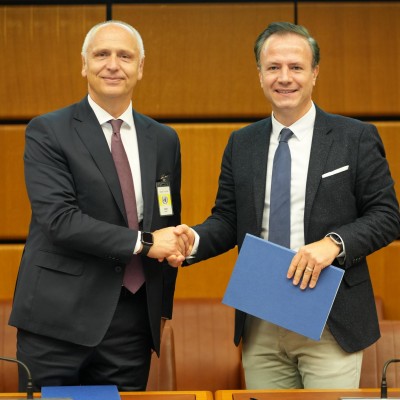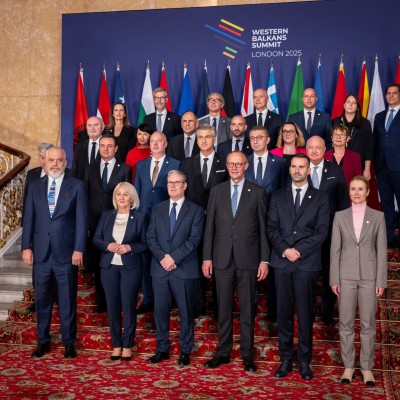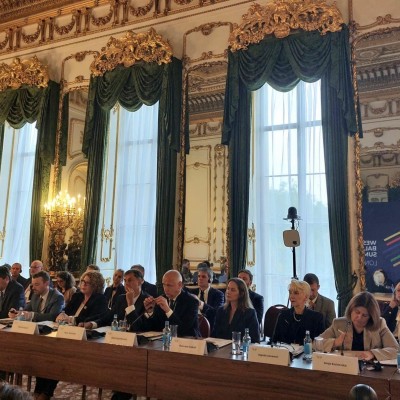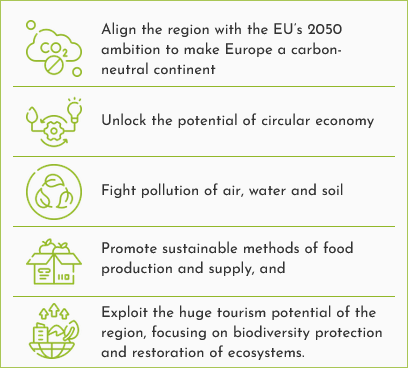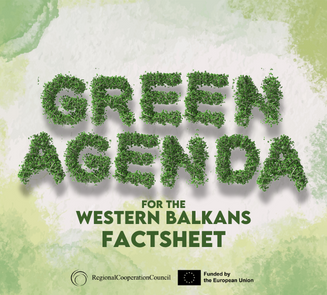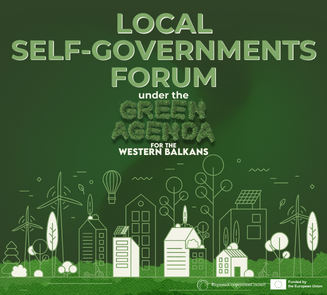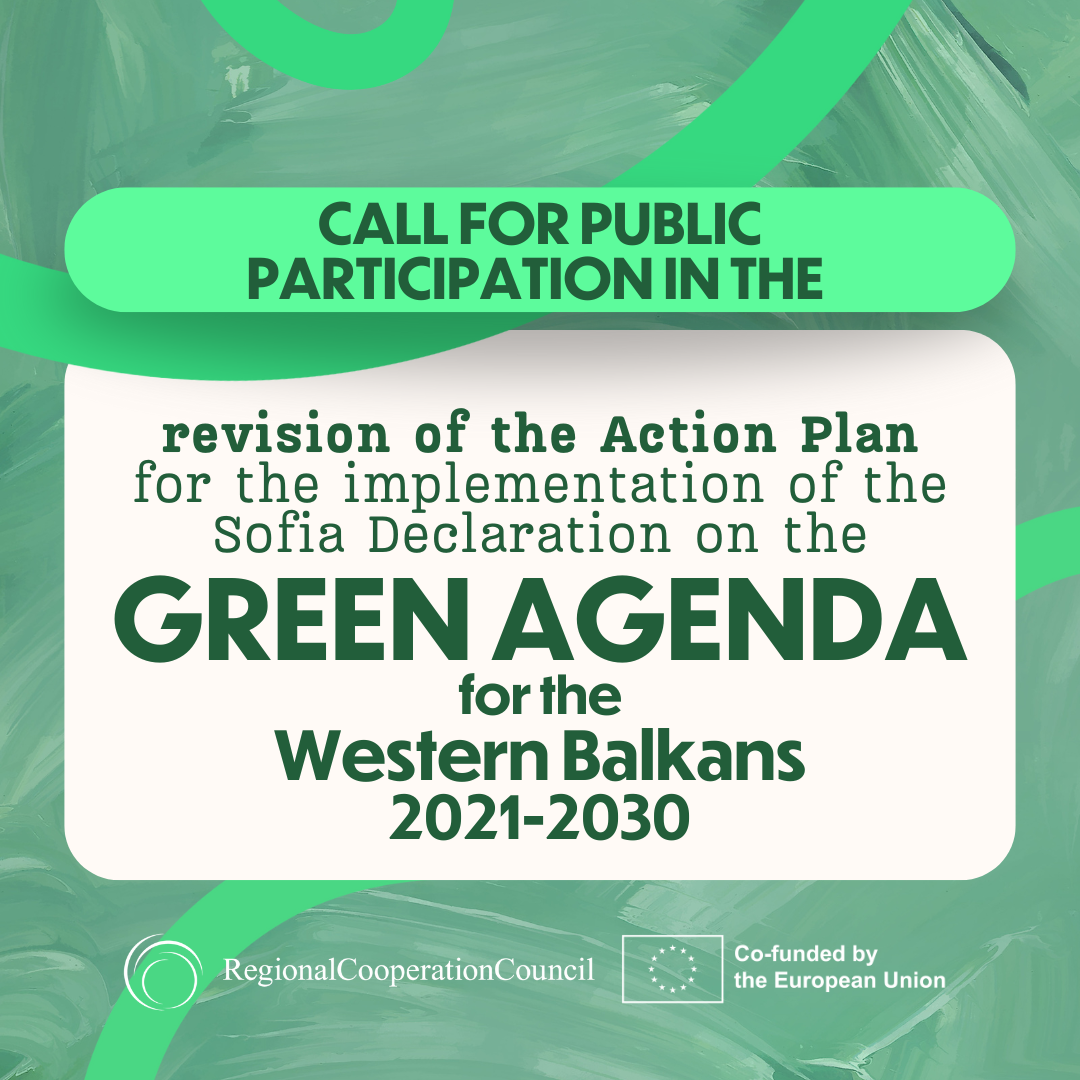Our objective is clear: to drive the green transformation of the Western Balkans by effectively facilitating the implementing the Green Agenda for the Western Balkans (GAWB) Action Plan 2021-2030 at the regional level. By endorsing the GAWB in 2020, the region committed to aligning with the European Green Deal's ambition of achieving carbon neutrality by 2050. The Regional Cooperation Council (RCC) has played a pivotal role in coordinating the drafting of the GAWB Declaration and translating commitments into a comprehensive Action Plan.
The GAWB‘s transformative ambition, coupled with its complexity, necessitates a holistic approach. The RCC's focus is on establishing functional governing structures for GAWB implementation, engaging political and technical levels, and fostering platforms for effective participation from civil society, local communities, businesses, and youth.
Our key activities include enhancing institutional capacities across Western Balkan economies to implement GAWB, providing technical assistance, conducting analytical work, and raising awareness about the green transition. Furthermore, we aim to establish fully functional monitoring and reporting mechanisms for tracking progress, identifying challenges, and facilitating knowledge sharing.
The envisioned results encompass functioning mechanisms steering GAWB Action Plan implementation, robust platforms for stakeholder consultations, and improved analytical underpinnings. Through these efforts, we are committed to timely and on-track GAWB Action Plan implementation, adjusting to the evolving environment and incorporating lessons learned for a sustainable and resilient future.


